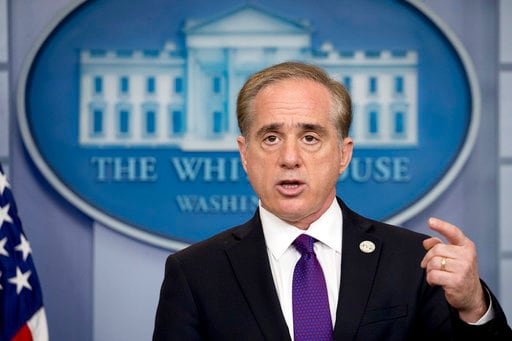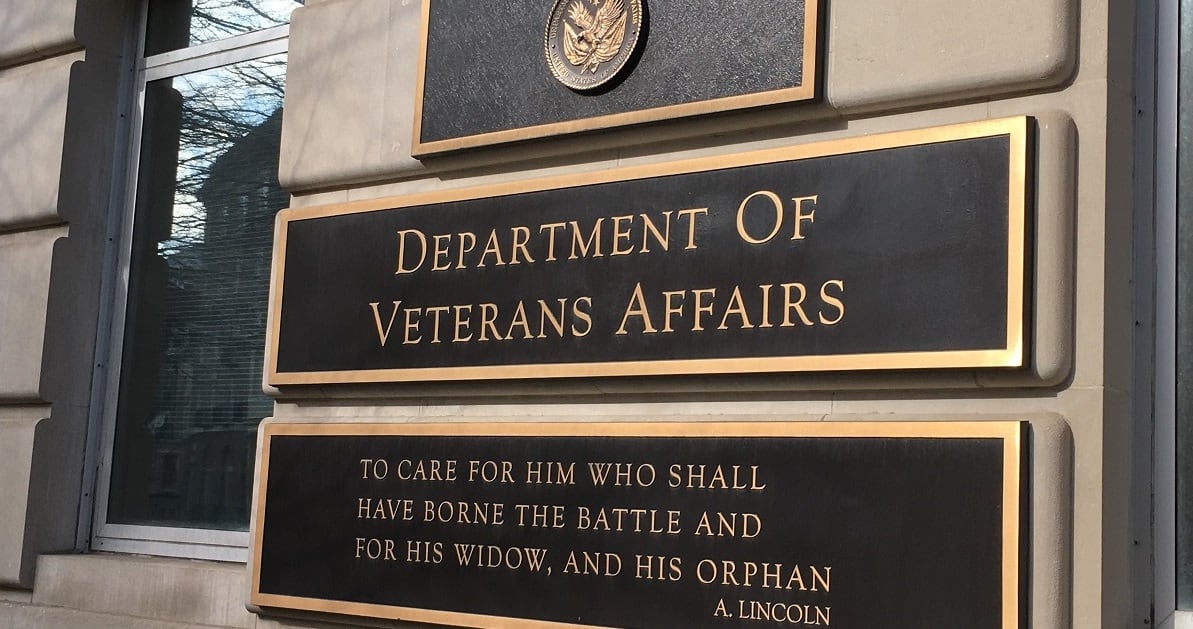WASHINGTON — Security officials charged with protecting the Veterans Affairs secretary were careless with travel information, collected false overtime payments and improperly acted as a chauffeur for one secretary’s wife, according to a report from the department’s inspector general released Thursday.
The review dates back to 2015 and offers a host of concerns with management and operations at VA’s Executive Protection Division. It blasts leaders for “an informal and deficient threat assessment process” and lists equipment problems going unaddressed for several years.
Officials from the Inspector General’s office found few reasons to criticize former VA Secretary David Shulkin for his use of the security detail, a topic of rumor and accusations in the veterans community for several years.
The report says his requests for increased security were unusual but not improper, given threats against the office and the administration, and his use of security staff for overseas travel was in line with department policies.
RELATED

However, it does criticize Shulkin for using his personal driver to transport his wife on several occasions, despite being warned that would run afoul of federal ethics rules. Investigators called it a clear violation of public taxpayer funds.
They also found that during Shulkin’s controversial trip to Europe in July 2017, three agents claimed to be providing security for the secretary when they were actually sightseeing in Sweden. Investigators said they were able to receive improper pay for the time because of the division was “without effective supervision” at the time.
One year ago, the inspector general issued a report detailing multiple ethics issues with that trip, including Shulkin improperly paying for his wife’s travel with taxpayer funds, using VA personnel to arrange sightseeing trips, and accepting tickets to a Wimbledon tennis match in violation of federal regulations.
Shulkin was fired by President Donald Trump in March 2017, in part because of his handling of the trip and the ensuing public outcry.
The new report does not detail any issues with his handling of security staff on the trip, but does criticize Shulkin for using his personal driver to transport his wife on several occasions, despite being warned that would violate federal ethics rules.
But the larger management issues within the security division point to serious problems that date back even before Shulkin’s tenure, and weren’t corrected until last year.
They include guards leaving motorcade vehicle keys in unsecure areas for convenience, sharing secretaries’ travel schedules with non-VA employees, and agents failing to wear bulletproof body armor because “agents had complained the vests were uncomfortable.”
RELATED

Investigators also found numerous incidents of staff being overworked. One driver for the division had 92 instances of working more than 14 hours in a day and a stint of 19 consecutive days on duty.
In response to the report, VA officials noted management changes within the division in the last year that addressed many of the failings. They also promised administrative action against any employees who submitted false time cards or violated other department rules, and blamed the problem on Shulkin’s administration.
“Some employees willfully engaged in bad security practices because the former VA Secretary and Chief of Staff did not allow (appropriate) leadership to hold them accountable,” officials said in their response.
The department spent about $2.6 million in executive protection services in 2017, much of that in personnel base salaries and overtime costs.
The full report is available on the VA Inspector General’s web site.
Leo covers Congress, Veterans Affairs and the White House for Military Times. He has covered Washington, D.C. since 2004, focusing on military personnel and veterans policies. His work has earned numerous honors, including a 2009 Polk award, a 2010 National Headliner Award, the IAVA Leadership in Journalism award and the VFW News Media award.




